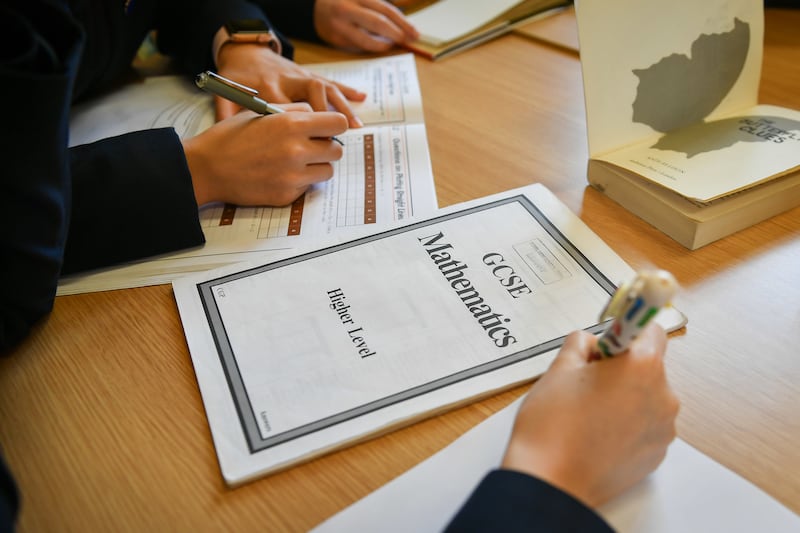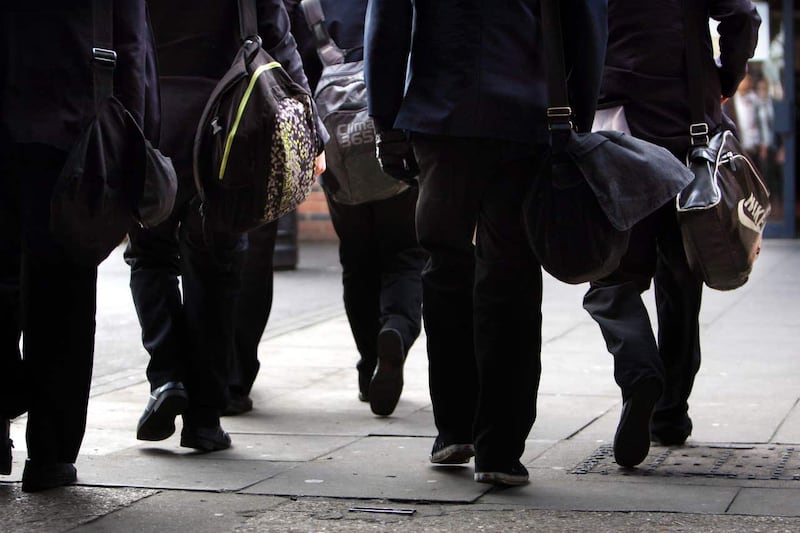The “damaging” legacy from school closures during the pandemic will mean poorer GCSE results for pupils in England well into the 2030s, researchers have warned.
Cohorts of children affected by the Covid-19 pandemic face the “biggest” decline in GCSE outcomes in decades and an “unprecedented” widening of the socio-economic gap, according to a study.
The learning loss suffered by pupils could become the “worst legacy” of the pandemic as poorer GCSE results are set to “scar” a generation of children, a social mobility expert has suggested.
The research, funded by the Nuffield Foundation, recommends a series of reforms – including rebalancing the school calendar which it argues has been “stuck in place since Victorian times”.
It suggests spreading the school holidays more evenly across the year – by shortening the six-week summer break and lengthening the October half-term to a fortnight – would be a popular policy with parents.
The report – from academics at the universities of Exeter, Strathclyde and the London School of Economics – analyses how school closures during Covid-19 hindered children’s skills at age five, 11 and 14.
It predicts fewer than two in five pupils in England will achieve a grade 5 or above in English and mathematics GCSEs in 2030 – which is roughly equivalent to a high grade C or low grade B.
This is lower than the 45.3% of pupils in England who achieved this benchmark – which is one of the Government’s key accountability measures for secondary schools – in 2022/23.
The report calls for a number of “low-cost” policies to be introduced – including a national programme of university undergraduate tutors delivering academic and mentoring support to pupils to help boost their foundational cognitive and socio-emotional skills.

It adds a “rebalanced school calendar” should be trialled in some areas as families face challenges – including a lack of childcare and “holiday hunger” – in the long summer break.
Lee Elliot Major, who is one of the report authors and a professor of social mobility at the University of Exeter, said reforms to the school calendar would “improve the wellbeing of teachers and pupils by creating more holiday breaks during the gruelling winter term”.
The research found that socio-emotional skills – which include the ability to engage in positive social interactions, cooperate with others, show empathy, and maintain attention – are “as important as cognitive skills” in achieving good GCSEs and decent wages after school.
England’s pandemic response was focused on academic catch-up with less emphasis on socio-emotional skills, extracurricular support, and wellbeing compared with most other nations, the report concluded.
It said: “Our results suggest that to improve child outcomes, much greater emphasis is needed in schools on activities that improve both socio-emotional and cognitive skills.”
The study calls for an “enrichment guarantee” to be introduced in schools so all children benefit from wider activities outside the classroom.
It also recommends that Ofsted inspections should explicitly recognise disadvantage and credit schools excelling when serving disadvantaged communities.
Researchers developed a model of skills using data from the Millennium Cohort Study – which follows the lives of around 19,000 children born in the UK at the turn of the century.
The model was applied to later pupil cohorts to estimate how GCSE results will be impacted by disruption from school closures during the pandemic.
The report concludes: “Covid induced learning losses and declines in socio-emotional skills will significantly damage the education prospects of five-year-olds at the time of Covid school closures, with boys 4.4 percentage points less likely to achieve five good GCSEs and girls 4.8 percentage points less likely to do so.”
Prof Elliot Major told the PA news agency: “If we don’t do something to change this, then many children will experience poorer life prospects as a result.
“We’ve had lots of debates about the pandemic, it could be that the sort of worst legacy of all is actually the damage to the education of a whole generation of children.”

Speaking about the report’s findings, he said: “Poorer GCSE results will scar successive cohorts of children well into the 2030s, signalling a decline in the country’s social mobility levels.”
Prof Elliot Major added: “Without a raft of equalising policies, the damaging legacy from Covid school closures will be felt by generations of pupils well into the next decade. Our review shows that Covid amplified long-term persistent education gaps in England and other countries.
“A particular worry is a group of pupils who are falling significantly behind, likely to be absent from the classroom and to leave school without the basic skills needed to function and flourish in life. The decline in social mobility levels threatens to cast a long shadow over our society.”
Dr Emily Tanner, programme head at the Nuffield Foundation, said: “The mounting evidence on the long-term impact of learning loss on young people’s development shows how important it is for students to develop socio-emotional skills alongside academic learning.”
Pepe Di’Iasio, general secretary of the Association of School and College Leaders (ASCL), said: “This important research is a devastating warning that must be heeded by policymakers – educational standards are at risk of going into decline.
“The current Government failed to rise to the challenge during and after the pandemic because its investment in education recovery fell woefully short of what was needed.
“The same mistake must not be made again and ministers both now and in the future must invest in schools, colleges and teachers.”
A Department for Education spokesperson said: “We have made almost £5 billion available since 2020 for education recovery initiatives, which have supported millions of pupils in need of extra support.
“We are also supporting disadvantaged pupils through the pupil premium, which is rising to almost £2.9 billion in 2024-25, the highest in cash terms since this funding began.
“This is on top of our ongoing £10 million Behaviour Hubs programme and £9.5 million for up to 7,800 schools and colleges to train a senior mental health lead.”








